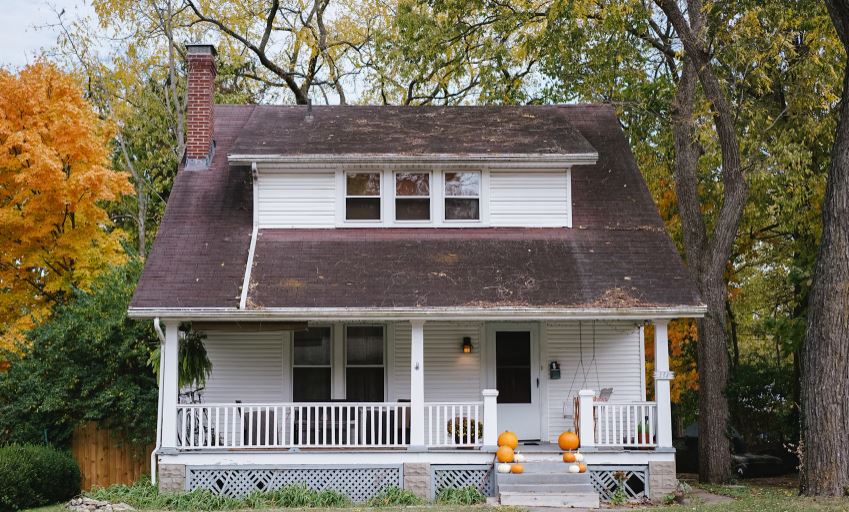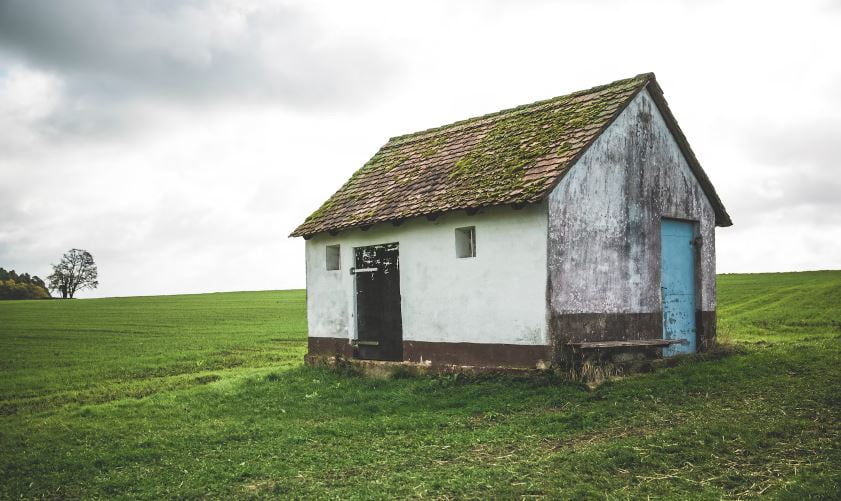Buying a home is one of the biggest financial decisions a person can make.
For many homebuyers, bank-owned distressed properties are a great opportunity to purchase a home for less than market value.
However, these properties also come with risks and challenges.
In this quick guide, I’ll go over the ins and outs of buying bank-owned real estate.
What Are Bank-Owned Properties?
Bank-owned properties, also known as real-estate owned (REO) properties, are homes that have been foreclosed upon and repossessed by the bank or lender.
Also Read: What are HUD Homes
Here’s how a home becomes a bank owned property -
- The homeowner misses mortgage payments for several months.
- The lender initiates foreclosure proceedings to reclaim the property as security for the unpaid loan. This can be a lengthy legal process.
- If the state requires it, the foreclosed property is put up for auction, and people can bid to buy it.
- If the bidding at the auction doesn't reach a price high enough to cover the outstanding mortgage, fees, and other costs, the property fails to sell.
- At this point, the lender becomes the owner of the house, and it becomes a bank owned / REO property.

Banks typically want to sell these properties quickly to recover their investment.
As a result, bank-owned homes are often priced below market value. For buyers, this presents an opportunity to purchase a home for less than what it would normally sell for.
The discounted pricing makes bank-owned properties super attractive, especially in high-priced real estate markets.
Pros Of Buying Bank-Owned Properties
Purchasing a bank-owned property has a number of advantages:
Potentially Lower Price
The biggest draw for many buyers is the chance to purchase a property below market value.
Banks are motivated to sell quickly and recoup their losses, so you might snag a good deal.
This can translate into instant equity for you as a buyer.
Motivated To Sell
Negotiating the price with a bank can be easier than with a private seller who may have emotional attachment to the property.
Banks are more flexible, especially if the property has been sitting on the market for a while.
Reduced Competition
Since REOs have gone through foreclosure, they might not attract the same frenzy of interest compared to a hot property on the traditional market.
Also Read: Best Time To Sell A Distressed House
This can be especially true for properties that have been sitting for a while.
With fewer competing offers, you might have a better chance of securing the property
Lower Chance Of Title Issues
There's a generally lower chance of encountering title issues with REO properties.
Banks have a vested interest in ensuring a clear title before acquiring the property through foreclosure.
They typically conduct their own title searches and address any outstanding liens or claims before listing the property for sale.
Move-In Ready
Banks often inspect the property and make some repairs and make the house “livable” before listing it for sale.
This can reduce some renovation costs.
Cons Of Buying Bank-Owned Properties
Now there are also disadvantages to consider:
Unknown Condition
Bank-owned properties are typically sold "as-is," meaning the bank has no obligation to make repairs. So the buyer takes on all repair costs and liabilities.
Sure they do some repairs, but it's the bare minimum needed to make it livable.
The house could have suffered neglect during the foreclosure process and may require significant renovations.
Unexpected repairs can quickly eat into any savings from the purchase price discount.
Limited Disclosure
Unlike traditional home sales, banks aren't required to provide seller disclosures detailing the property's history or potential problems.
You'll need to conduct thorough inspections.
Also Read: Mold And Water Damage In Distressed Houses
Lengthy Purchase Process
The REO buying process can be slower than a standard home purchase.
Banks have their own procedures and approval steps that can add time to the closing process.
Financing Challenges
Getting financing for an REO property can be trickier compared to a traditional home.
Some lenders might hesitate due to the property's unknown condition.
How To Buy A Bank-Owned Property
Buying an REO property takes preparation and diligence.
Here are some tips for a successful purchase:
Get Pre-Approved
Since REO homes are sold as-is, you need to be able to act quickly when you find one you want to make an offer on.
Get fully pre-approved for a mortgage ahead of time so you have your financing ready and can make a serious, credible offer immediately when you find the right REO property.
Pre-approval shows sellers you are a qualified, motivated buyer.
Hire A Buyer’s Agent
This is not absolutely required, but hiring a buyer's agent who has experience with REO properties can be extremely helpful.
They understand the process and know how to properly approach and negotiate with banks.
A REO agent will know what to look for and can guide you through potential pitfalls.
Find REO Properties
Now you need to find REO properties. Banks don't always advertise these properties widely, so it might take some time.

Check the websites of major banks, or search online real estate listing services like RealtyTrac. Check government websites like Fannie Mae as well.
Your buyer's agent might be able to help too.
And you can find properties in foreclosure by looking at the public records at your county clerk's office.
Here’s a more detailed guide on how to find them.
Make Your Best Offer
Don't try lowballing on an initial offer - bank owned homes often end up selling very close to fair market value.
Come in with your highest and best offer from the start. The bank's main goal is to get the most money possible to recoup their losses on the foreclosure.
Making a low initial offer will likely just get rejected outright.
If your offer gets approved, you'll be asked to sign a contract, and deposit earnest money - about 1% - 2% of the purchase price.
And there will be penalties if the closing passes the deadline in the contract.
Inspect The Property
REO properties are sold completely as-is, meaning the bank won't make any repairs whatsoever before selling.
It's absolutely critical to hire home inspectors to thoroughly examine the entire interior and exterior condition, as well as major systems like plumbing, electrical, HVAC, roof, etc.
These inspections will identify any issues or needed repairs you'll have to address yourself.
Perform A Title Search
Banks usually take care of title issues - but this isn't always guaranteed.
Have a licensed title company perform a thorough search on the property to check for any liens, legal judgments, unpaid tax bills or other issues that could impact the title.
Otherwise, you'll end up being responsible for all these debts.
Finalize And Closing
If your offer is accepted, be prepared to move very quickly through the closing process.
REOs typically have extremely short closing timeline windows of 30 days or less.
Have your financing fully approved and ready, and line up your homeowner's insurance policy promptly to avoid delays.
FAQs
Do Bank Owned Properties Sell For Less?
Yes, bank-owned properties generally sell at a discount compared to traditional home sales. The lender has motivation to sell quickly and recover their investment.
How Much To Offer On Bank-Owned Property?
There is no universal rule for how much below asking price to offer on a bank-owned home. A good offer takes into account the condition of the property, comparable values, and the local real estate market.
A reasonable starting point is 5-10% below list price, then adjusting based on conditions.

